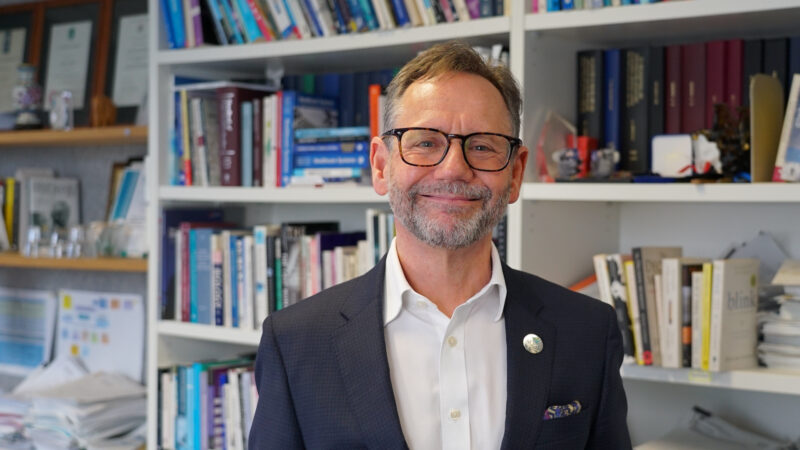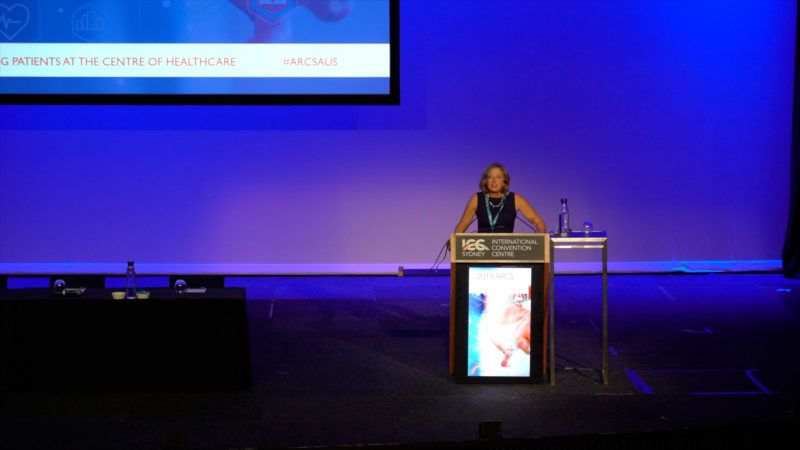INCREASING THE ED RESEARCH FOOTPRINT
Health Careers: Advice from an Emergency Physician in Research
Associate Professor Viet Tran, Emergency Physician, Royal Hobart Hospital
Filmed Hobart, Tasmania | September 2024
Associate Professor Viet Tran, an experienced emergency physician at the Royal Hobart Hospital. He spoke with Australian Health Journal about the crucial role of emergency departments as the frontline of hospitals, providing immediate care, diagnosis, resuscitation, and serving as a safety net for the healthcare system. Prof. Tran highlights the importance of understanding the daily responsibilities and core aspects of a specialty when choosing a medical career.
Recognising the relatively young status of emergency medicine as a specialty, Prof. Tran has taken on leadership roles to advance research in this field. In 2019, he became the Director of Emergency Medicine Research with the Tasmanian Department of Health, aiming to enhance the research footprint and collaboration within the specialty. His efforts have led to collaborations with national networks such as the PREDICT network and the National COVID research for ED, ultimately contributing to the development of emergency medicine research infrastructure in Tasmania.
Currently, Prof. Tran is leading a major MRFF study focusing on implementing clinical pathways in Tasmania to expedite the translation of research findings into improved patient care. This specific focus on this initiative is to minimise variations in patient care and address health inequities in rural and regional emergency department settings.
Associate Professor Viet Tran’s roles;
- Deputy Director of Emergency Medicine at Royal Hobart Hospital
- Associate Professor of Emergency Medicine, University of Tasmania,
- Founding Director, Tasmanian Emergency Medicine Research Institute
- Chair of the Tasmanian Emergency Departments Network
- Board Member, Emergency Medicine Foundation
- Co-Chair of the Tasmanian Health Senate
You Might also like
-
Australian Primary Health Care Nurses Association Career Federal Budget General Practice New Content Nursing
A New Era in Primary Health Care Nursing
Coinciding with this year’s International Nurses Day, this week’s Federal Budget has had some significant outcomes for the primary health care, nursing workforce.
The Federal Budget delivered on 9th May 2023, APNA believes will strengthen Australia’s primary health care (PHC) system by addressing growing nursing shortages, seeing more nurses hired where they are needed, and better utilising the largest workforce in PHC of nearly 100,000 nurses to their full potential to reduce the pressure on the health system.
-
Australian Healthcare and Hospitals Association Health Services and Systems Hospitals and Clinics New Content Patients
Professor Jeffrey Braithwaite on patient safety and health systems improvement
Professor Jeffrey Braithwaite is Founding Director of the Australian Institute of Health Innovation, Director of the Centre for Healthcare Resilience and Implementation Science and Professor of Health Systems Research at Macquarie University.
Professor Jeffrey Braithwaite is a leading health services and systems researcher with an international reputation for his work investigating and contributing to systems improvement.
The Australian Healthcare and Hospitals Association (AHHA) recently announced it will award the 2021 Sidney Sax medal for outstanding contributions to the development and improvement of Australia’s healthcare system to Professor Jeffrey Braithwaite.
-
ARCS Annual Conference 2019
Earlier this month, ARCS Australia held it’s Annual Conference at the International Convention Centre Sydney – ICC Sydney, with the theme of putting patients at the centre of healthcare. Uniquely, the conference included a number of patients who attended, presented or were referenced.



